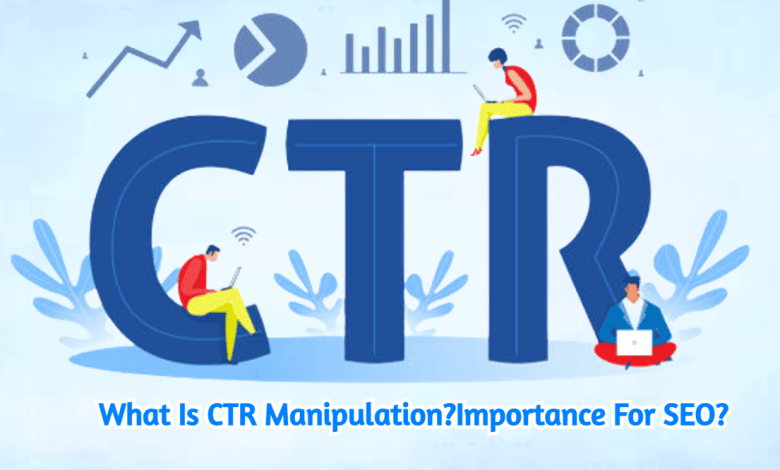LinkDaddy CTR Manipulation: Specialized Providers for Improved Internet Traffic
Wiki Article
Checking Out the Connection Between CTR Adjustment Solutions and Individual Habits
In the world of digital advertising, the influence of click-through price (CTR) adjustment services on individual actions remains a complex and appealing subject. By dissecting the detailed partnership between CTR manipulation solutions and user habits, appealing understandings emerge that may reshape our understanding of electronic advertising and marketing approaches and their results on consumers.Effect of CTR Control on Behavior
Analyzing the impact of Click-Through Price (CTR) adjustment on customer habits exposes critical insights into the dynamics of online interaction. CTR adjustment includes synthetically pumping up the variety of click a certain link or promotion to trick individuals and online search engine. This method can bring about an altered understanding of a website's popularity or relevance, eventually affecting individual habits.
Furthermore, CTR adjustment can alter the information utilized by algorithms to personalize user experiences. This can cause users being offered content that does not align with their preferences or passions, inevitably resulting in a decrease in user complete satisfaction and engagement. Recognizing the impact of CTR manipulation on individual habits is vital for maintaining openness and count on online interactions.
Customer Engagement With Manipulated CTR
Customer engagement with adjusted CTR information frequently results in skewed assumptions of online web content popularity and relevance. When individuals connect with material based on unnaturally filled with air Click-Through Fees (CTR), they may believe that particular details, products, or solutions are more popular or credible than they actually are. This can lead to customers making choices based on misleading information, bring about potentially unfavorable results.Involvement metrics like likes, shares, remarks, and time invested in a webpage are typically influenced by CTR control. Users might be much more likely to engage with content that shows up to have greater interaction prices, further bolstering the cycle of skewed assumptions. Consequently, content makers and advertisers might focus on producing material that creates high CTR as opposed to concentrating on creating truly important and appropriate product.

Emotional Effects of CTR Control

In addition, the psychological effects of CTR adjustment can likewise manifest in altered decision-making procedures. Customers may be much more inclined to click on content only based upon its perceived popularity, rather than its actual worth or relevance to their needs. This behavior change can lead to a superficial involvement with on-line content, where individuals may neglect high-quality but less preferred offerings in support of those with artificially improved CTRs.
Essentially, the emotional ramifications of CTR manipulation highlight the relevance of preserving transparency and credibility in on-line interactions to cultivate real individual involvement and trust fund.
Honest Factors To Consider in CTR Control
Taking into consideration the honest effects of adjusting click-through prices (CTR) in online systems is vital for preserving honesty and trust fund within the digital community. CTR manipulation elevates problems about deceiving individuals, misshaping data analytics, and jeopardizing the reputation of on-line web content. One major honest consideration is the prospective effect on individual freedom and decision-making. By unnaturally inflating CTR, users might be misguided into clicking on links or advertisements they would certainly not have actually chosen or else, like it bring about an insincere online experience. CTR adjustment can alter the performance metrics that organizations depend on to make tactical decisions, inevitably affecting market competitors and customer trust.One more honest facet to contemplate is the fairness of adjusting CTR to acquire an unfair advantage over rivals. Taking part in such techniques not just goes against principles of fair game yet also weakens the trust that individuals put in online platforms. It is necessary for organizations and digital marketing professionals to promote honest criteria in their methods to ensure openness, credibility, and lasting sustainability in the on-line atmosphere.
Effects for Digital Advertising And Marketing
CTR manipulation can lead to skewed data analytics, misleading marketing professionals right into believing that their projects are doing much better than they really are. When customers recognize that CTRs have been adjusted, it can wear down count on in the brand name, leading to long-lasting negative effects for consumer loyalty and brand name credibility.Additionally, the usage of CTR control solutions can create an unreasonable affordable landscape, where firms that involve in such practices get a fabricated advantage over those that comply with ethical advertising and marketing standards. This can suppress innovation and creativity in digital advertising, as success ends up being even more concerning manipulation methods than providing genuine worth to consumers. Inevitably, the ramifications of CTR adjustment for electronic marketing prolong beyond short-term gains, influencing the total sustainability and credibility of marketing initiatives in the electronic world.
Final Thought
Finally, the relationship between CTR adjustment services and customer habits is complicated and complex. The impact of CTR adjustment on actions, user involvement with controlled CTR, psychological impacts, moral factors to consider, and effects for digital advertising and marketing all play a duty in forming this partnership. Comprehending these characteristics is vital for marketers and researchers alike in order to browse the ethical implications and make best use of the effectiveness of their electronic advertising and marketing approaches.Report this wiki page